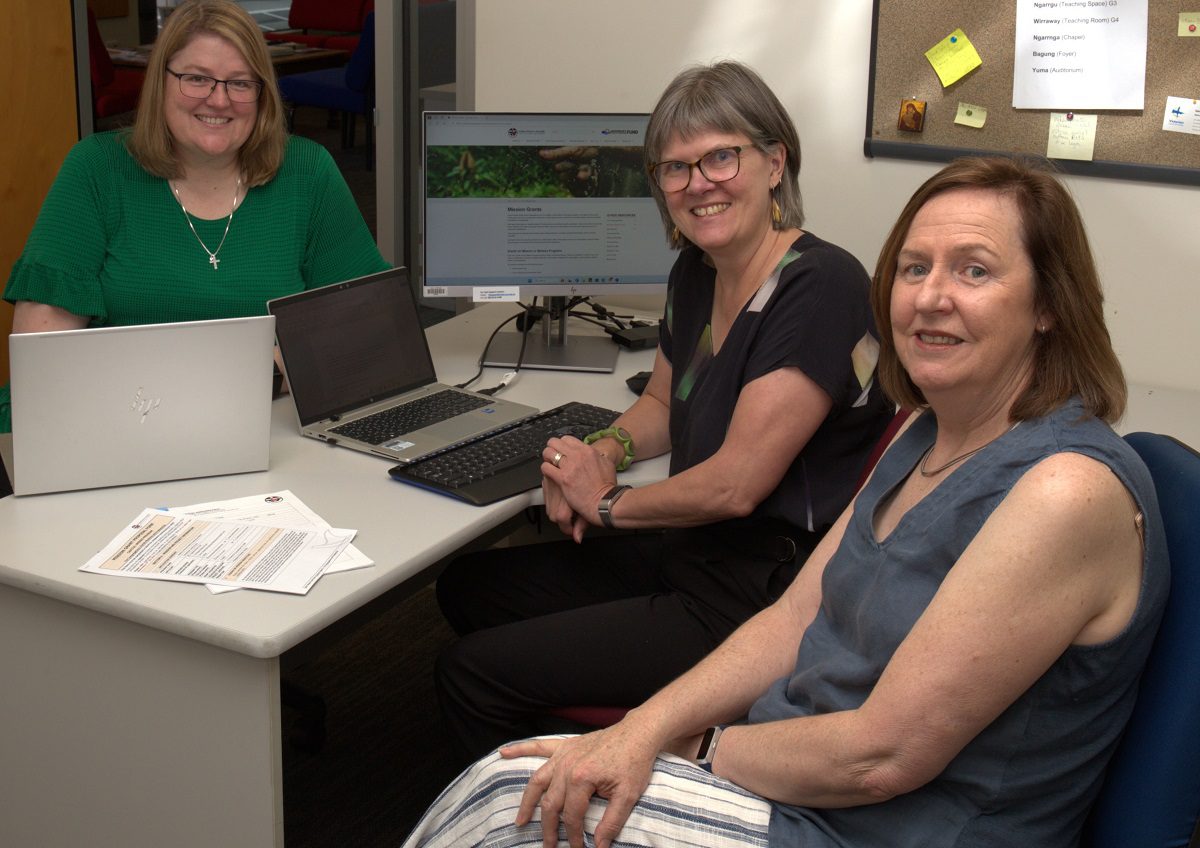By Andrew Humphries
Twenty years after his death, Kirk Robson’s legacy continues to live on within the Uniting Church in Victoria and Tasmania.
A talented theatre director, performer, filmmaker and community cultural development worker, Kirk was killed in a car accident in 2005.
Every other year, the Synod invites applications for people seeking financial assistance through the Kirk Robson Theology and the Arts Memorial fund and, since its inception, it has supported a diverse range of artistic projects throughout Victoria and Tasmania.
It’s a wonderful way of acknowledging Kirk’s short but profound influence on the arts,theology and the Uniting Church.
“It’s 20 years since Kirk’s death and the grant continues to be a wonderful way of paying tribute to him,” says Sue Clarkson, Co-Director of Relationships and Connections within equipping Leadership for Mission.
“The fund is a way of celebrating his story and achievements.”
The Kirk Robson fund is just one of many grants available to support a wide range of programs and initiatives throughout Victoria and Tasmania, falling into the broad categories of Education and Mission.
Some grants are funded from donations or bequests, to be used for specific or general purposes, and all have specific qualifying criteria, application processes and evaluation requirements.
Educational bursaries are available to assist congregations and individuals with a range of educational pursuits, including theological education, youth ministry, lay education, continuing education, regionalisation and bursaries for secondary and tertiary education.
The task of assessing the wide range of grant applications falls to various committees supported and resourced by Sue, Grants Co-ordinator Natalie Brown, and Finance Officer Ruth Boermans.
“Historically, grants have assisted in achieving a level of equity across the Synod, in supporting congregations that may not have had the funding to carry out particular ministries,” Natalie says.
“That is still what we’re trying to achieve with grants today, with a focus on supporting the Church’s continuing engagement with different ministries and mission.”
Grants offer, says Sue, “a collective way of allowing us to be God’s people in the world within a structured process”.
Money left through trusts and bequests continues to be a generous gift from Uniting Church members, allowing the Synod to distribute funds as part of its strong and ongoing commitment to mission.
“Bequests offer a way that Uniting Church members can continue to support mission and ministry after they have gone,” Natalie says.

Natalie Brown, Sue Clarkson and Ruth Boermans support and resource committees that oversee a wide range of grants.
Sue says it’s important that clear directions are included when leaving a trust, bequest or donation.
“Whenever I speak anywhere on the subject of grants I always encourage people in making a bequest towards something they may be passionate about to also indicate that their gift can be made available towards general use across the life of the Church,” she says.
Congregations are encouraged to apply for grants to support a range of big and small missional initiatives.
This includes funding for capital works where buildings are needed to support mission.
“It might be something like a congregation that wants to start a community garden and then invite people into that space,” Sue says.
One recent example, says Natalie, involved church members wanting to start a community craft and sewing group, with a grant allowing them to purchase sewing machines and materials.
“In 2025 we’re offering a new grant available across the Synod: small grants for small missional projects,” Sue says.
“These will be grants of up to $5000, seeding money really to assist congregations with small creative projects that help with local engagement and mission.”
Sue says the Church is committed to making the process as simple as possible for those applying.
“All of our grants programs are constantly in review as we try and be a little bit lighter and simpler in our processes, to enable mission to happen,” she says.
“We want to be flexible when it comes to our grants programs.”
Natalie says decisions on grant applications are made only after a thorough process involving collective decision-making.
“Part of that process of assessment is around ensuring that we are achieving that level of equity across the Synod, and are using our funds wisely,” she says.
“It’s about good stewardship of available funds.”
Further information on grants and closing dates are available via the grants webpage at or by sending an email to grants@victas.uca.org.au
Cash splash helps congregations
Camperdown Uniting Church
Camperdown received a Capital Works Grant of $10,000 to assist with the cost of upgrading their hall pantry and storage cupboards. The upgrade better enabled the capacity for catering for dinners and funerals, as well as their weekly community meal and twice-a-term Cooking with Kids programs which take place in the hall.
Glenorchy Uniting Church
Glenorchy received a Capital Works Grant of $50,000 to assist with the cost of upgrading the hall kitchen, thereby enhancing their ability to provide services to the wider community through existing programs such as Messy Church and the Glenorchy Community Care Inc. Food Program, as well as enabling them to explore new and innovative ministries that would utilise this facility.
Stawell Uniting Church
Stawell received a Small Rural Grant of $1200 to support the congregation hold and cater for monthly meals for the local community, with the purpose of building connections among attendees, as well as addressing the crisis of loneliness.
Irymple Uniting Church
Irymple received a Small Rural Grant of $5000 to assist with the cost of recarpeting the church building, creating a more respectful and presentable space to support the congregation express their Tongan culture in worship through bible readings, hymns and their children’s programs. The grant also helped to mitigate safety issues around old flooring, and to offer a safe and comfortable place to sit or kneel for those members of the congregation who choose this during the service.

